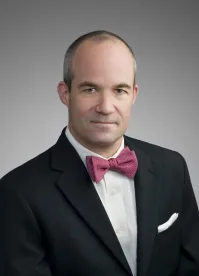I don't know who died and made me Ethics Czar.
I'm sure my character does not equip me to lecture the appellate nerds on ethics at theUTCLE Appellate Conference.
And I'm sure my MPRE score would be no endorsement for ethical expertise.
And yet here I am, scheduled to wag my ethical finger at the smartest lawyers in the state on June 13.
About all I know is that there is one sure fire way to solve all problems of legal ethics. And if we resorted to it more often, lawyers of a certain age (like me) might have more or their hair.
After the jump, the power of no, and a preview of my speechifying.
Do they still have an MPRE, the ethics exam that all lawyers must take to be licensed? Do they still call it that? And do you find our profession to be super ethical?
What I remember about the MPRE is the complexity:
-
Things you can't do.
-
Things you can but maybe shouldn't do.
-
Things you can decline but probably should do.
-
And even things you must do.
And when do those decisions arise? At the worst possible moment, typically when a case is going to hell, a client or former client is angry, there is no time to think, and there are no good options left.
But there is one time in an attorney client relationship where the lawyer has maximum freedom and power:
Before that relationship is formed.
In creating the relationship, the attorney becomes a fiduciary. In the words of the state bar oath, the attorney "honestly demeans" him/herself in the practice of law. Once a lawyer enters into an attorney client relationship, the client's interests (with few exceptions) take first place.
But fiduciary relationships (and attorney client) relationships are created by consent. The only way you can become a fiduciary without your actual consent is if you are sketchy and vague, if you fail to document the actual consent or refusal to consent.
So how does this help you avoid winding up in the court of appeals with a lousy legal position or a frivolous record or trial counsel malpractice hanging around your neck like a burning tire?
-
First, enlarge that time where you have maximum freedom. That is the power of time.
-
Second, document when the attorney client relationship forms, and more important, when it hasn't formed. If you are evaluating the case to determine whether to represent the client, put that status in writing.
-
Third, stop, look, and listen. If the trial lawyer or the client or the record or the legal position or the rushed schedule make the whole thing look sketchy, use your most powerful tool. Just say no.
Sure, saying no means giving up a fee, and sure, we practice law at least in part to earn money. But there is no reason to chase lousy cases.
Remember the old Wall Street saying: "Bulls make money; bears make money; but pigs get slaughtered."
By all appearances, the appellate bar hasn't been missing any meals lately. We are not at risk of malnutrition or penury.
So just say no. Eat a salad and wait for the next case.




 />i
/>i

